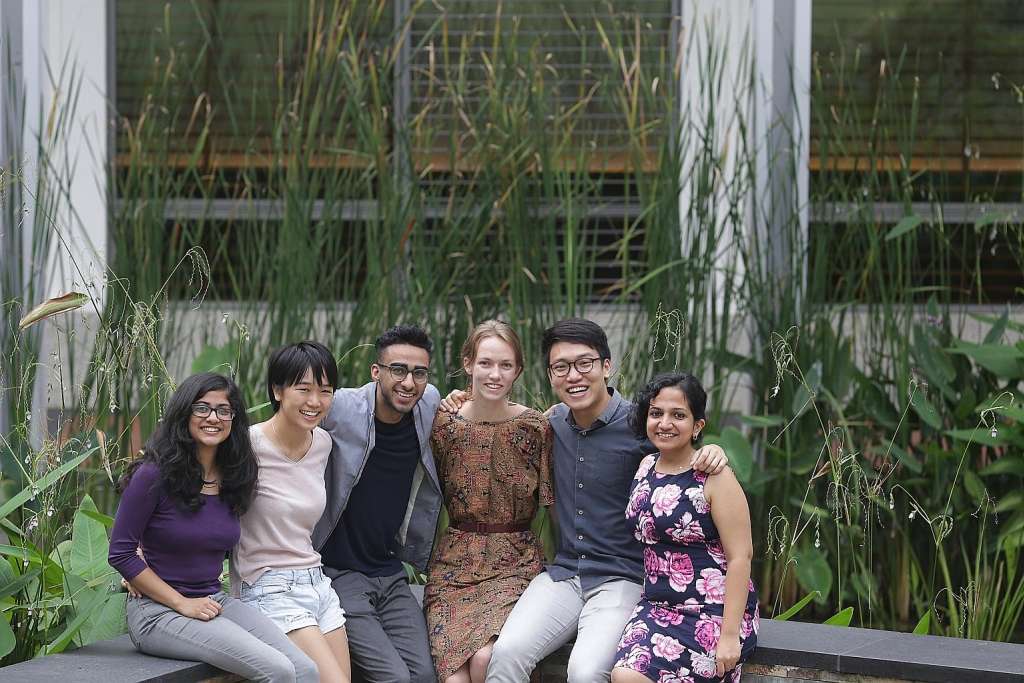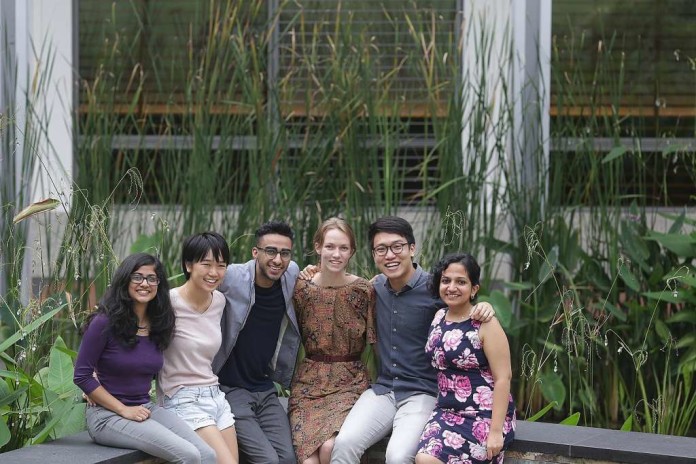Nominated MP Chia Yong Yong made a heartfelt plea during a recent debate on the proposed constitutional amendments to the elected presidency.
She called on Singaporeans to talk about race and religion instead of politicising the issue, following the decision to reserve next year’s polls for Malay candidates.
Minister of State Janil Puthucheary made a similar call in August after an Institute of Policy Studies (IPS) survey showed that half of Singaporeans hold negative stereotypes of other races.
Dr Janil, who is chairman of OnePeople.sg, a national body that promotes racial and religious harmony, said people are hesitant and afraid to discuss race relations because they fear being seen as racist.
In fact, the conversation has already started, with schools and tertiary institutions introducing several initiatives to tackle issues of diversity, identity and inclusion.
For instance, Yale-NUS College started an inter-group dialogue programme last year and Singapore Management University (SMU) initiated a study this year to explore perceptions on these same issues.
“There is definitely a lot more talk (about diversity). We hear it in the classrooms, and students ask us where are the spaces on campus where they can feel safe (to discuss such issues),” said Mr Ho Jack Yong, assistant director of diversity and inclusion at SMU.
WHAT PROMPTED THE CONVERSATION?
Mr Ho said students have become more interested since global conversations about the dangers of Islamophobia, and locally, the debate over the elected presidency and also the difference in rewards for able-bodied and disabled athletes.
SMU’s study aims to gather data on perceptions by students, staff and faculty on issues that include gender and disability. More than 500 people have been interviewed, and their responses are being analysed, said Mr Ho.
SMU said the study will be done regularly for the diversity and inclusion office to track the outcomes of their efforts, and allow them to identify where there may be stronger negative perceptions towards specific groups of people.
t is also considering bringing back the diversity leadership development programme next year. This uses workshops and real-world projects to groom students to be diversity champions on campus.
Ms Sara Pervaiz Amjad, intercultural engagement manager at Yale-NUS, said its intergroup dialogue programme has students discussing issues such as gender identity, ethnicity and nationality, spirituality and religion.
More than 20 faculty and staff members have been trained to facilitate these sessions, and close to 60 students have attended.
Held over eight weeks with an average of 12 students in each group, these sessions introduce the concept of “brave spaces”, which let students go beyond “safe”, or politically correct discussions of issues into areas such as intercultural dating.
Ms Amjad said there are rules, such as ensuring that participants voice their discomfort during the discussion, and use “I” statements that do not attempt to speak for anyone else or an entire group of people. Yale-NUS has about 150 to 200 students in each cohort, and the ratio of local to international students is about 6:4.
WHAT HAVE THE PARTICIPANTS LEARNT?
Fourth-year Yale-NUS student Kei Franklin, who is from the United States, said she realised the ability to conduct intercultural communication is not an inherent personality trait, but rather a set of skills that can be learnt.
“If you can create a common vocabulary for your class where everyone talks about consent in the same way, then presumably you can do that for a whole school and for a whole community, city, or country,” said the 23-year-old.
This conversation is not just limited to tertiary institutions.
OnePeople.sg said it has increased engagement with schools and key agencies following the findings of the IPS survey.
The national body uses dramatised case studies of social issues and invites audiences to participate by coming up with solutions in a forum theatre programme.
OnePeople.sg has taken this theatre programme to more than 11,000 secondary and post-secondary students since it was first started in 2014. It plans to take the series to more institutes of higher learning next year.
While he lauded the initiatives, which he says can boost communication and understanding among students, Dr Yang Peidong, a research fellow at Nanyang Technological University’s sociology department, asked if they can reach “deep and wide” enough to solve the issue in a fundamental way.
Dr Yang, who has written about the alienation that students from China face at universities in Singapore, said students at the local public tertiary institutions prioritise good grades and securing a good job, adding: “The biggest obstacle to better interaction and communication between students of diverse identities and backgrounds is ultimately a lack of interest, compounded by the issues of academic competition and frictions arising from sharing resources and spaces.”
Is racism a problem in Singapore?
Is Singapore a racist country?
That was the title of a blog post penned by Yale-NUS undergraduate Iwani Zoë Mawocha in April which gained much attention here on social media and online news sites.
In the post, the 21-year-old South African detailed her experiences of being subjected to racist remarks or behaviour after arriving in Singapore in 2014 as a foreign student.
This included people who “equated blackness (with) violence, theft, corruption and crude behaviour”, and toddlers that stared at her when she took the MRT.
“For you to be terrified of a stranger, there has to have been the conditioning that dark is bad,” said Ms Iwani.
She said people were surprised when they read the post.
After all, they said, she had grown up in South Africa, where the social policy of apartheid, a system in which black South Africans received fewer social and political rights than white South Africans , only ended in 1994.
Ms Iwani noted: “In South Africa, there was that solidarity and acknowledgement that the problem (of racism) is real.” Singapore people do not recognise racism as easily, she added, because they grew up in a society where racial harmony is one of the central tenets.
Ms Iwani said the topic of racism should be seen as a starting point for discussions about why racist ideas are formed, and on how to understand other cultures better.
“People need to be aware that it doesn’t make you a bad person to have these (prejudiced) thoughts,” said Ms Iwani, who welcomes Yale-NUS’ efforts to start such honest conversations on campus.
The arts and humanities major, who says she “adores” Singapore for its cultural accessibility, hopes that such intercultural discussions might extend beyond the school community.
“With fewer than a thousand students in Yale-NUS, if we keep our intercultural discussions to ourselves, we may quickly run out of insights to give and facts to exchange because we’re all part of a like-minded community anyway.”
yuensin@sph.com.sg

This article was first published on Nov 27, 2016.
Get a copy of The Straits Times or go to straitstimes.com for more stories.







